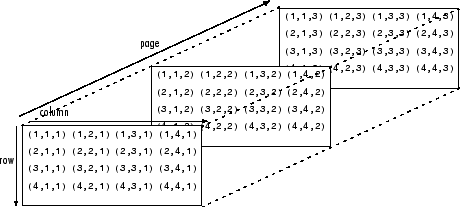pagectranspose
Page-wise complex conjugate transpose
Syntax
Description
Examples
Input Arguments
More About
Tips
The page-wise complex conjugate transpose is equivalent to permuting the first two dimensions of the array with
permute(conj(X),[2 1 3:ndims(X)]).
Extended Capabilities
Version History
Introduced in R2020b
